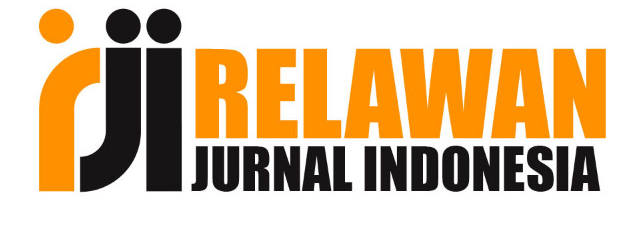Pengaruh Penganggaran Partisipatif Dan Asimetri Informasi Terhadap Budgetary Slack Dengan Moral Equity Sebagai Variabel Moderasi
DOI:
https://doi.org/10.36982/jiegmk.v12i2.1305Abstract
Research on the effect of participatory budgeting and information asymmetry on budgetary slack still shows the inconsistency of conflicting results. This study aims to provide empirical evidence about the effect of participatory budgeting and information asymmetry on the tendency to make budgetary slack and the effect of moral equity as a moderating variable on the relationship between the variables of participatory budgeting, information asymmetry, and budgetary slack. The object of this research is all managers who work at PT. Pos Indonesia (Persero), PT. Pindad (Persero), PT. Kereta Api Indonesia (Persero) and PT. Len Industri (Persero), except for the board of directors. Data were collected using a research instrument in the form of a questionnaire with a total of 70 respondents. The analysis model used was moderated regression analysis (MRA - Moderated Regression Analysis). The results showed that: 1) Participatory budgeting had a positive and significant effect on budgetary slack as indicated by the coefficient value of participatory budgeting of 1.012 with a significance level of (4.999>1.998). 2) Information asymmetry has a significant negative effect on budgetary slack as indicated by the information asymmetry coefficient value of -1.7382 with a significance level of (-3.394 > - 1.998). 3). The results of the analysis show that moral equity is proven to be a moderator between participatory budgeting and information asymmetry towards budgetary slack in a positive direction. So it can be understood that budgetary slack can be reduced by increasing participatory budgeting and information asymmetry through moral equity.
Keywords: Participatory Budgeting, Information Asymmetry, Budgetary Slack, Moral Equity
References
Alfebriano. 2013. Faktor-faktor yang mempengaruhi slack anggaran pada Bank BRI di kota Jambi. e-Journal Binary Akuntansi, Vol. 2 No. 1.
Anthony, Robert N. and V. Govindarajan. 2005. Sistem Pengendalian Manajemen. Jakarta: Salemba Empat.
Arfan, Lubis Ikhsan. 2011. Akuntansi Keperilakuan, cetakan kedua. Jakarta: Salemba Empat.
Ashmeade et al. 2017. Ethical concern of budgetary slack creation. Journal of accounting, ethics and public policy, Volume 18, No. 3 (2017).
Belkaoui, A. 1989. Behavioral Accounting, The Research and Practical Issues. New York.
Dunk, A. S. (1993). The Effect of Budget Emphasis and Information Asymmetry on the Relation between Budget Participation and Slack. Accounting Review.
Falikhatun (2007). Interaksi Informasi Asimetri, Budaya Organisasi, dan Group Cohesiveness Dalam Hubungan Antara Partisipasi Penganggaran dan Budgetary Slack. Simposium Nasional Akuntansi X.Makassar.
Fitriana Nurhayati, S.E. and Wahyu Widayat, M.E., 2013. Pengaruh Partisipasi Anggaran Terhadap Slack Anggaran Dengan Informasi Asimetris Sebagai Moderating Variable. (Doctoral dissertation, Universitas Gadjah Mada).
Govindrajan, V. 2007. Impact of Participation in The Budgetary Process on Managerial Attitude and Performance Universalistic and Contingency Perspective Decision Science.
Hansen dan Mowen. 2009. Akuntansi Manajemen. Jakarta: Erlangga.
Hansen, D. R., & Mowen, M. M. (2006). Cost Management Accounting & Control.In Manager.
Irfan et al, 2016. Pengaruh Partisipasi Anggaran terhadap Senjangan Anggaran dengan Asimetri Informasi, Penekanan Anggaran & Komitmen Organisasional sebagai Variabel Pemoderasi. Jurnal Akuntansi dan Investasi, Vol. 17 No. 2, Hlm: 158-175, Juli 2016.
Kartika, A. (2010). Pengaruh komitmen organisasi dan ketidakpastian lingkungan dalam hubungan antara partisipasi anggaran dengan senjangan anggaran (Studi empirik pada rumah sakit swasta di Kota Semarang). Kajian Akuntansi, 2(1), 246951.
Magee, R. P. (1980). Equilibria in budget participation. Journal of Accounting Research, (Autumn), 18(2), 551–573.
Maiga, A. S. (2005). The Effect of Manager’s Moral Equity on the Relationship Between Budget Participation and Propensity to Create Slack: A Research Note. Advances in Accounting Behavioral Research.
Maiga, A.S. et al. (2014). Assessing the impact of Budgetary participation on Budgetary outcomes: the role of information technology for enhanced communication and activity-basedcosting, Journal of Management Control, Vol. 25, No. 1, 5-32.
Mardiasmo. (2002). Akuntansi Sektor Publik. Penerbit Andi, Yogjakarta.
Melina, Abdul, 2017. Analisis Pengaruh Anggaran Partisipatif Terhadap Budgetary Slack Dengan Pertimbangan Etika Sebagai variabel Moderasi, Diponegoro Journal Of Accounting, Vol. 6 No. 3.
Robin, D. P., & Reidenbach, R. E. (1996). The perceived importance of an ethical issue as an influence on the ethical decision-making of ad managers. Journal of Business Research, 5(1), 17–28.
Robin, D. P., & Reidenbach, R. E. (1996). The perceived importance of an ethical issue as an influence on the ethical decision-making of ad managers. Journal of Business Research,5(1), 17–28.
Siegel, G., & Ramanauskas-Marconi, H. (1989). Behavioral accounting. Thomson South-Western.
Sihombing, M. Y., & Rohman, A. (2017). Analisis Pengaruh Anggaran Partisipatif Terhadap Budgetary Slack dengan Pertimbangan Etika Sebagai Variabel Moderasi (Studi Kasus pada PT PLN (Persero) Distribusi Jawa Tengah & DI Yogyakarta) (Doctoral dissertation, Fakultas Ekonomika dan Bisnis).
Sihombing, M., & Muda, I. E. Jumilawati & A. Dharsuky.(2017). Factors Affecting The Success of Local Innovation Systems with Government Programs As Moderators. International Journal of Economic Research, 14(21), 272-289.
Suharman, H. (2012). The Influence of Corporate Social Performance, Budget Emphasis, Participative Budget on Job Related Tension. World Journal of Social Sciences, 2(7), 48-63.
Sugiyono. 2003. Statistika untuk Penelitian. Penerbit CV Alfabeta, Bandung.
Young, S.M. 1985. Participative budgeting: The Effect of risk aversion and assymetric information on budgetary slack. Journal of accounting research 23.
Downloads
Published
How to Cite
Issue
Section
License
Authors retain copyright and grant the journal right of first publication with the work simultaneously licensed under a Creative Commons Attribution License that allows others to share the work with an acknowledgement of the work's authorship and initial publication in this journal.
Â
Authors are permitted and encouraged to post their work online (e.g., in institutional repositories or on their website) prior to and during the submission process, as it can lead to productive exchanges, as well as earlier and greater citation of published work.
Â
LP2M Indo Global Mandiri University has the right to multiply and distribute the article and every author is not allowed to publish the same article that has been published in this journal.










